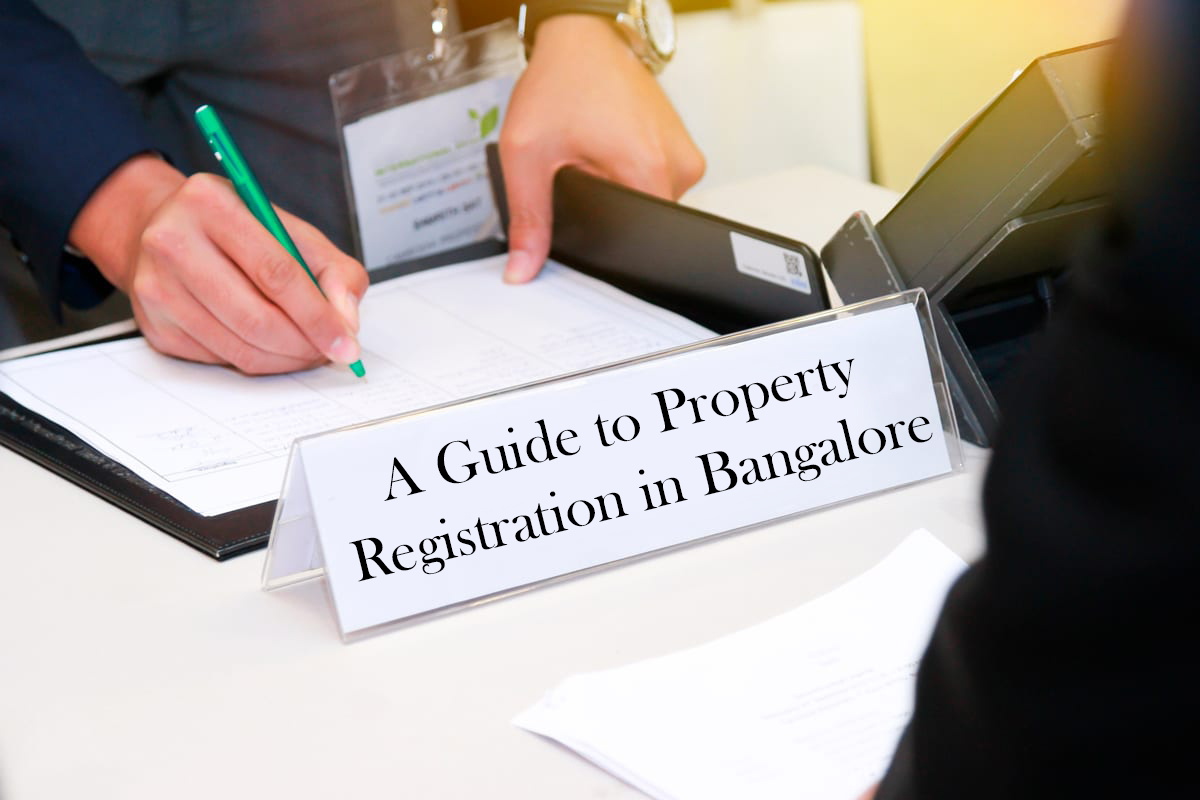A Guide to Property Registration in Bangalore
Read latest blogs and articles from Housystan

The Information mentioned here was last updated on:
29/1/2026A Comprehensive Guide to Property Registration in Bangalore
Navigating the maze of property registration in Bangalore can seem daunting at first. However, with the right information, you can stay on top of the process without a hitch. This guide will walk you through the essential steps and provide useful tips to make property registration in Bangalore a breeze.
Understanding Property Registration
- Verified Tenants/Buyers
- Unlimited Property Listing
- Zero subscription/charges fee
What is Property Registration?
Property registration is the legal process of recording the rightful ownership of a property. This ensures that your property is officially recognized by the government and helps prevent future disputes regarding ownership.
Why is Property Registration Important?
- Legal recognition: Confirms the property's ownership under your name.
- Prevention of disputes: Reduces the risk of legal disputes and ownership conflicts.
- Secure property transactions: Ensures that property transactions are both secure and binding.
Key Steps in Property Registration
1. Verification of Property Documents
Before you proceed with property registration, it's important to conduct a thorough verification of all property-related documents. Important documents include:
- Sale Deed: Establishes the sale and transfer of ownership.
- Mother Deed: Traces the origin and history of property ownership.
- Tax Receipts: Confirms payment of property taxes.
- Encumbrance Certificate: Shows that the property is free from legal dues.
- Khata Certificate and Extract: Important for municipal records.
2. Consult with a Legal Expert
Hiring a legal expert or property lawyer can provide a valuable insight into the nuances of property laws and ensure that all documents are in order. A professional can also help identify any hidden issues that might affect the transaction.
3. Stamp Duty and Registration Fees
Before registering your property, you must pay stamp duty and registration fees. In Bangalore, the rates are as follows:
- Stamp Duty: Typically, around 5-6% of the property's market value.
- Registration Fees: Usually 1% of the property's market value.
How to Calculate Stamp Duty and Registration Fees
- Use an online calculator provided by the Karnataka Government's property registration website to estimate fees.
- Always account for contingencies by budgeting slightly higher than the estimated costs.
4. Drafting the Sale Deed
The Sale Deed is a crucial document in property registration. It should be drafted clearly, with all terms and conditions expressly laid out. Ensure it includes:
- Detailed description of the property.
- Details of the buyer and seller.
- Agreed purchase amount.
- Terms of property transfer.
5. Property Valuation
The property's value must be determined by an official valuation process, which serves as a basis for calculating the stamp duty. This can be done through the Sub-Registrar's office.
6. Executing the Sale Deed
Once the Sale Deed is drafted, both the buyer and the seller must execute the deed by affixing their signatures. This must be done in the presence of at least two witnesses who will also sign the document.
7. Visit the Sub-Registrar's Office
Submit your Sale Deed and other necessary documents for validation at the Sub-Registrar's office in the area where the property is located. Make sure you carry:
- Proof of identity and address.
- Original documents and their photocopies.
- Payment receipt of stamp duty and registration fees.
The registration process involves the following:
- Verification of all submitted documents by the Sub-Registrar.
- Capture of biometric data including fingerprints and photographs of buyer and seller.
- Issuance of receipt of registration upon successful verification.
Essential Tips for Smooth Property Registration
- Plan your visit: Avoid peak hours at the Sub-Registrar's office by arriving early.
- Double-check all documents: Thoroughly verify each document before submission.
- Stay updated: Keep abreast of any changes in property registration laws or fees.
Common Pitfalls to Avoid
- Incomplete documents: This can cause delays; ensure all documentation is complete.
- Miscalculation of fees: Double-check the fees to avoid underpayment.
Additional Resources
Understanding the process of property registration in Bangalore can save you time, money, and future headaches. By following the steps above, you’ll ensure a smooth transaction devoid of legal troubles. Stay informed and act wisely for a hassle-free experience.